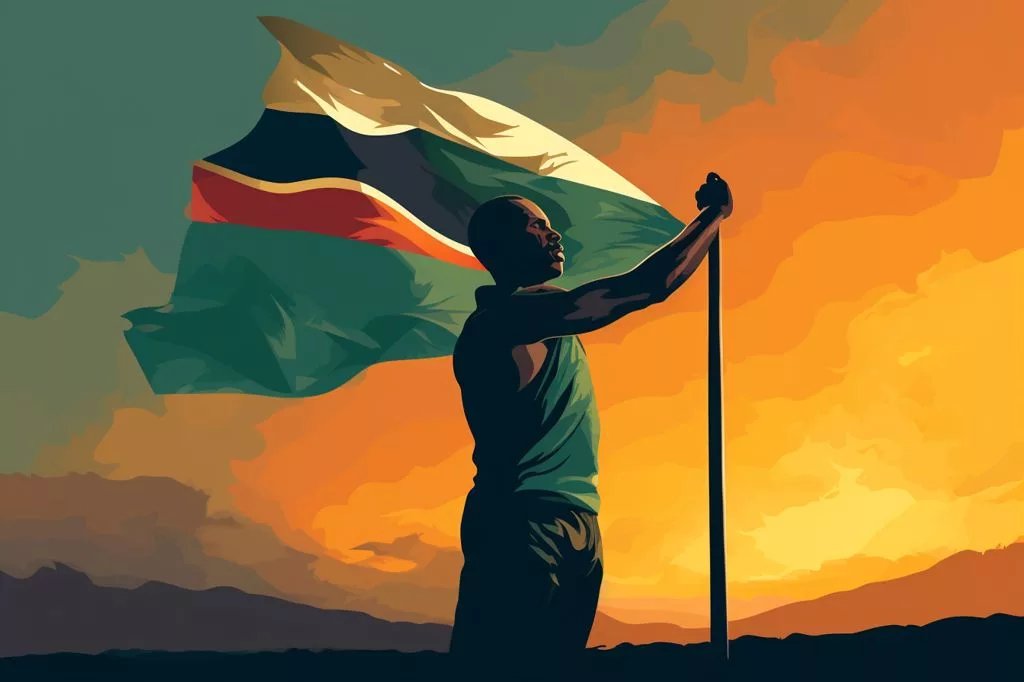It is essential for the government to act quickly and pass the necessary legislation to ensure that the legacy and impact of South Africa’s sporting heroes are not diminished by inadequate governance.
Sports Teams as Symbols of Unity
South Africa’s national sports teams like the Springboks and the Proteas have long been sources of pride and unity, representing the nation’s strength and resilience. However, this unity is at risk, as the lack of anti-doping legislation in South Africa might prevent athletes from competing under their country’s flag or singing the national anthem during award ceremonies.
The government has been aware of this issue but has not made it a priority. This has prompted Western Cape Minister of Cultural Affairs and Sport Anroux Marais to express her deep concerns about the possible consequences. Recognizing the urgency, Marais has taken the initiative to engage in discussions with the World Anti-Doping Agency (WADA) in the hope of finding a solution that will allow these athletes to continue representing South Africa honorably.
The current situation highlights the intricate relationship between sports, politics, and national identity. Throughout history, sports have served as a way to bridge cultural and social divides, and South Africa is no exception. The Springboks and the Proteas embody the aspirations of the nation, and their achievements on the world stage have the power to inspire and unite South Africans from all walks of life.
The Threat to National Pride and Unity
The absence of anti-doping legislation not only jeopardizes the careers of these athletes but also threatens to undermine the sense of unity and national pride that their accomplishments have fostered. In a world where global interconnectivity has intensified scrutiny of the ethics and integrity of sports, South Africa cannot afford to fall behind, particularly given the significant role sports have played in building a more inclusive and cohesive society.
South Africa has faced similar challenges before, as its troubled past of institutionalized racial segregation and inequality led to its exclusion from international sporting events during apartheid. The end of apartheid marked the return of South African sports to the global stage, with Nelson Mandela famously wearing a Springbok jersey during the 1995 Rugby World Cup as a symbol of unity and reconciliation.
The potential exclusion of South African athletes from competing under their national flag and anthem due to inadequate anti-doping laws serves as a reminder of past struggles and an indication of ongoing challenges in striving for a more inclusive and prosperous future. It is crucial for the government to recognize the gravity of this issue and act quickly to pass the necessary legislation, both for the athletes representing their country and for the millions of South Africans who draw inspiration and pride from their achievements.
The Need for Action and Commitment
In light of South Africa’s rich sporting history and ongoing efforts to address racial disparities and promote social cohesion, ensuring that its athletes can continue competing under the national flag and singing the anthem is of utmost importance. The current dilemma underscores the broader challenges the country faces in governance, transparency, and accountability and highlights the need for a collaborative effort by all stakeholders to address these issues promptly and effectively.
The forthcoming meeting between Minister Marais and WADA presents an opportunity for South Africa to display its commitment to upholding the highest standards of sportsmanship and integrity and its dedication to overcoming the obstacles that impede the nation’s progress. As South Africans worldwide eagerly anticipate the outcome of these talks, the message is evident: the time for action is now, and South Africa must rise to the challenge and ensure that the legacy and impact of its sporting heroes are not diminished by inadequate and ineffective governance.
In conclusion, the issue of anti-doping legislation in South Africa extends beyond the sphere of sports and speaks to the broader challenges the nation faces in its ongoing pursuit of inclusion, unity, and prosperity. The government must act decisively to address this critical issue, not only for the benefit of its athletes but also for the millions of South Africans who derive a sense of national pride and identity from the successes of their sports teams. Failure to do so will not only damage the country’s global reputation but will also serve as a painful reminder of the sacrifices and hard-won victories that have been instrumental in shaping the nation’s collective identity.
1. What is the pressing need for anti-doping laws in South Africa?
It is essential for the government to act quickly and pass the necessary legislation to ensure that the legacy and impact of South Africa’s sporting heroes are not diminished by inadequate governance.
2. How does the lack of anti-doping legislation affect national unity in South Africa?
The lack of anti-doping legislation in South Africa might prevent athletes from competing under their country’s flag or singing the national anthem during award ceremonies, which threatens to undermine the sense of unity and national pride that their accomplishments have fostered.
3. Why has the government not made anti-doping legislation a priority?
The government has been aware of this issue but has not made it a priority.
4. Who has expressed concern about the lack of anti-doping legislation in South Africa?
Western Cape Minister of Cultural Affairs and Sport Anroux Marais has expressed her deep concerns about the possible consequences.
5. What has Anroux Marais done to address the issue of anti-doping legislation in South Africa?
Recognizing the urgency, Marais has taken the initiative to engage in discussions with the World Anti-Doping Agency (WADA) in the hope of finding a solution that will allow these athletes to continue representing South Africa honorably.
6. Why is sports important for national identity in South Africa?
Sports have served as a way to bridge cultural and social divides, and South Africa is no exception. The Springboks and the Proteas embody the aspirations of the nation, and their achievements on the world stage have the power to inspire and unite South Africans from all walks of life.
7. How does the lack of anti-doping legislation in South Africa relate to past struggles?
The potential exclusion of South African athletes from competing under their national flag and anthem due to inadequate anti-doping laws serves as a reminder of past struggles and an indication of ongoing challenges in striving for a more inclusive and prosperous future.
8. What is the message to South Africa regarding the issue of anti-doping legislation?
The message is evident: the time for action is now, and South Africa must rise to the challenge and ensure that the legacy and impact of its sporting heroes are not diminished by inadequate and ineffective governance.








